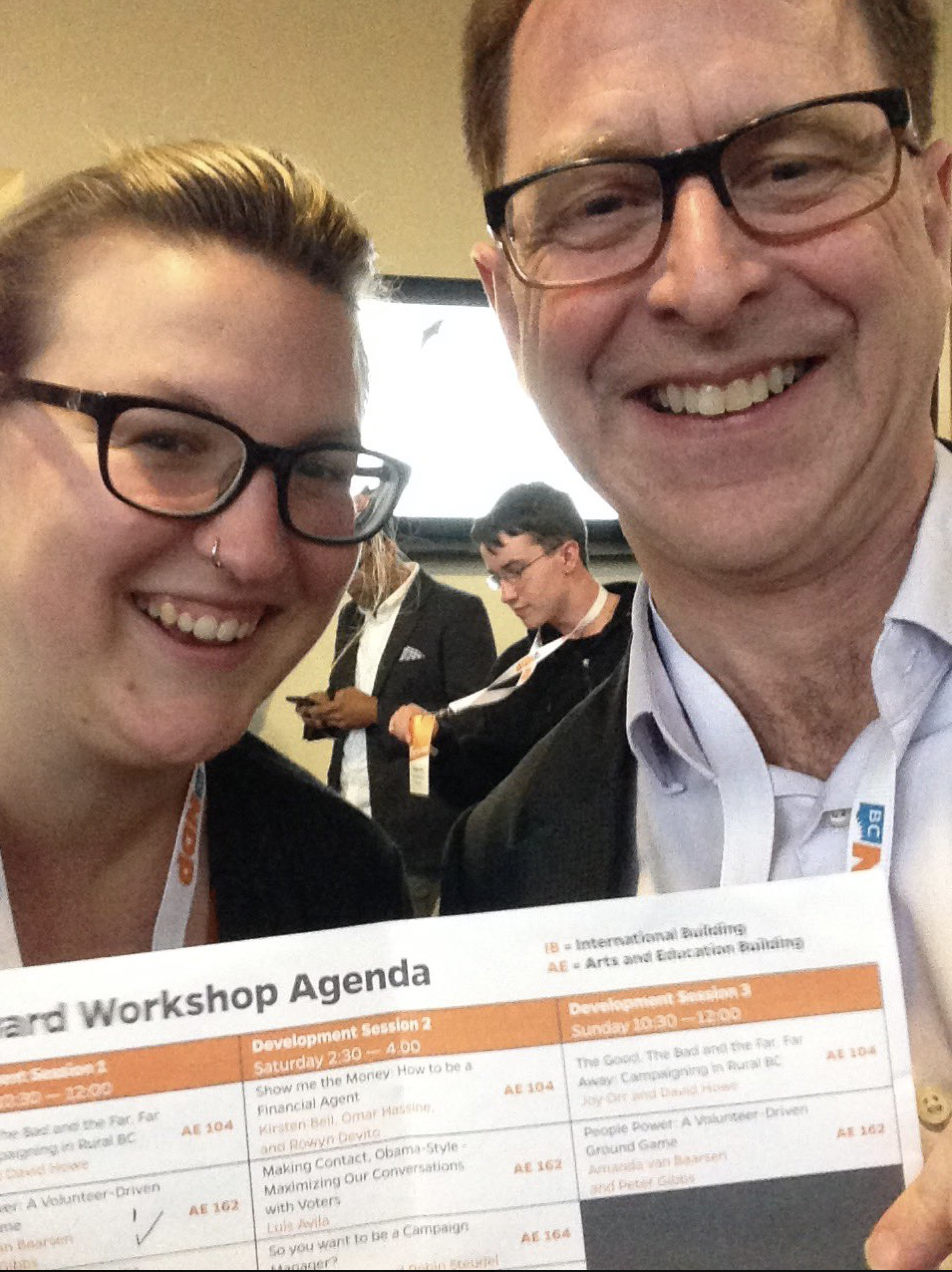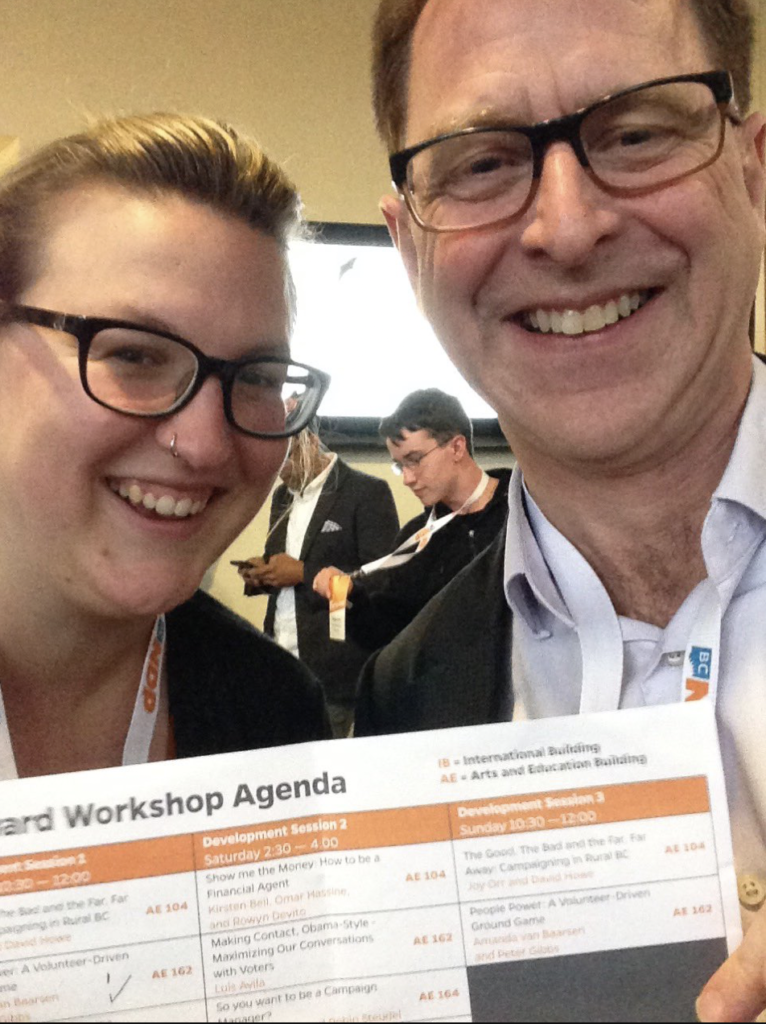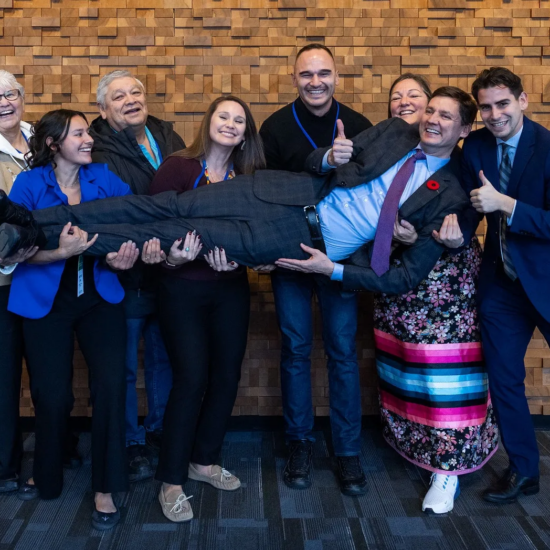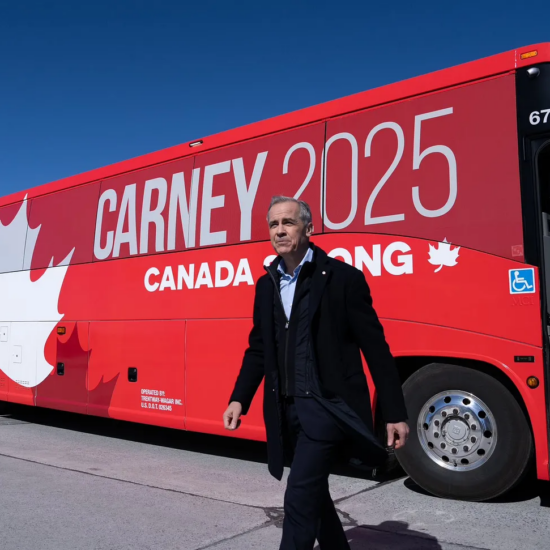
Bob Mackin
Another NDP insider has passed through the revolving door from the John Horgan government into a lobbying company.

Amanda Van Baarsen (left) and Adrian Dix in 2016 (Twitter/van Baarsen)
Amanda van Baarsen, who was Minister of Health Adrian Dix’s senior aide at more than $97,000-a-year, joined Counsel Public Affairs Inc. She is the associate vice-president for Western Canada at a firm boasting several pharmaceutical industry clients.
Since van Baarsen worked in Dix’s office, she is defined by the Lobbyists Transparency Act as a former public office holder and must wait two years before registering to communicate or arrange a meeting with a public office holder for the purpose of influencing lawmaking or spending.
“Amanda knows how this B.C. government works,” said Counsel’s Western Canada practice lead Brad Lavigne in the firm’s May 6 announcement. “She will apply that expertise to helping our clients succeed, not only for those in the health care sector, but for other priorities of this government as well.”
Counsel clients include Innovative Medicines Canada, HumanisRx, CareRx, and the Canadian division of AstraZeneca vaccine maker Emergent BioSolutions Inc. Counsel also represents the Canadian Home Builders’ Association of B.C., B.C. Real Estate Association and the Insurance Council of B.C.
Van Baarsen declined an interview request and did not respond to questions, including whether she might apply to the Office of the Registrar of Lobbyists (ORL) for an exemption to the two-year cooling-off period. She sent a statement attributed to Lavigne that said she would offer clients “important strategic advice and a wide array of services outside of registerable activities.”
Lobbying watchdog Duff Conacher of Democracy Watch said that even with the two-year prohibition, someone can still find a way to cash-in on the relationships and knowledge they gained while working in a minister’s office. He pointed to the ORL checklist for the 50-hour threshold to register, which includes activities such as negotiating lobbying service contracts, hiring and training staff and monitoring a lobbying strategy — none of which includes communicating with a public office holder.
“The law and the cooling-off period are really a charade, more loopholes than they are solid rules,” Conacher said. “They need to be turned into solid rules that prohibit people from giving an advantage and essentially selling access and information that they learned while they were supposedly serving the public.”

Premier John Horgan (left), Minister Sheila Malcolmson and ex-party president Craig Keating (Horgan/Twitter)
At Counsel, van Baarsen is reunited with another NDP operative who was involved in pandemic response. Jean-Marc Prevost was Dr. Bonnie Henry’s scriptwriter until he quit in early 2021 to join the firm and represent Emergent. The two-year rule did not apply to Prevost, because he worked in the Government Communications and Public Engagement (GCPE) department, instead of Dix’s office.
Same goes for former GCPE employees Jeffrey Ferrier and Danielle Dalzell. Ferrier was the Ministry of Health’s executive director of communications for almost a year, but joined Hill and Knowlton and registered for AstraZeneca in April. Dalzell has worked at Earnscliffe Strategies for two years since leaving GCPE, where her job included writing Horgan’s speeches.
Also in April, ex-B.C. NDP president Craig Keating registered to lobby the NDP government for marijuana farmer Tantalus Labs. Keating ended his second term in December and joined Strategies 360, a firm that employs former B.C. NDP executive directors, Raj Sihota and Michael Gardiner. Gardiner, Horgan’s former leadership campaign manager, runs the Canadian office for the Seattle firm and his clients include one of the government’s biggest suppliers, Telus.

Ex-NDP corporate fundraiser Rob Nagai with John Horgan. (Twitter)
The revolving door trend began shortly after the NDP came to power in 2017. The Horgan government banned corporate and union donations and capped individuals to $1,200-a-year. The NDP’s corporate fundraiser, Rob Nagai, left the party to join Bluestone Group, the firm run by veteran BC Liberal lobbyist Mark Jiles. Nagai had boasted of raising $7 million for NDP campaigns over a seven-year period.
Expert Daniel Gold analyzed the evolution of campaign financing and lobbying in his 2020 University of Ottawa doctoral thesis, “Lobbying Regulation in Canada and the United States: Political Influence, Democratic Norms and Charter Rights.”
“We’ve regulated campaign finance fairly strictly, which is great, but we’ve left the door wide open on lobbying with really minimal restrictions,” Gold said. “So corporate money has moved that way.”
Support theBreaker.news for as low as $2 a month on Patreon. Find out how. Click here.











